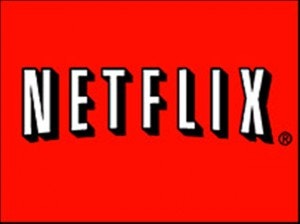
Netflix’s evolving business
When Netflix, Inc. (NASDAQ:NFLX) was founded in the late 1990s, the company was built on single-rental DVDs by mail — in effect, the standard Blockbuster model applied to the Internet. Later, Netflix decided to switch to a monthly subscription plan, and the company began to take off.
In a piece titled “How Netflix (and Blockbuster) Killed Blockbuster” Rick Newman details how the success of Netflix, Inc. (NASDAQ:NFLX)’s subscription model, combined with Blockbuster’s own shortcomings, drove the once-dominant movie renter into bankruptcy.
However, the most amazing thing about Newman’s piece is how outdated it is. Despite the fact that it was published less than three years ago, Newman gives only a passing mention to Netflix’s streaming ambitions. Today, Netflix is known primarily for its streaming, with its DVDs-by-mail dying a slow death.
But that streaming business is shifting
Now with video streaming as its dominant business, Netflix, Inc. (NASDAQ:NFLX) is working to transform what, exactly, that streaming entails. Three years ago, Netflix’s streaming content was nothing but a hodgepodge of various old movies and television shows from a variety of networks and studios — really, anything Netflix could get its hands on at a reasonable price.
At $8 per month, Netflix’s content was a great deal for anyone looking to binge. But of course, there are limits to that strategy. Why, for example, would someone with a robust cable package bother to sign up for Netflix, Inc. (NASDAQ:NFLX)?
Netflix is working to change that. The company has been rolling out original programming, and its clear that three years from now, Netflix will look more like an alternative cable network — except on the Internet.
Much more original content is in the works
In its letter to investors, Netflix, Inc. (NASDAQ:NFLX) spoke at length about the company’s ambitions for its streaming service — specifically, it’s all going to be about original or exclusive content from here.
In February, Netflix released the first season of House of Cards. Unlike other networks, which will typically show only one episode per week, Netflix opted to release all 13 episodes at the same time.
Some consumers took advantage of this, binge viewing all the episodes within a few days, then promptly cancelling their membership. Yet, according to Netflix, the number of people who did this was relatively small — only 8,000. Netflix contends that the media buzz and consumer satisfaction this strategy generated made up for any free-riders.
In addition to House of Cards, Netflix recently released horror thriller Hemlock Grove. Two other new shows will follow this year, along with a fourth season of Arrested Development (a show that last aired on Fox nearly seven years ago) and a second season of Netflix’s first original show, Lilyhammer.
There’s also an animated kids series coming at the end of the year, and a Sci-Fi thriller late in 2014. But it isn’t just about Netflix original content; the company is also working to secure exclusive rights to content from other providers.
In its letter, Netflix writes, “As we continue to focus on exclusive and curated content, our willingness to pay for non-exclusive, bulk content deals declines. At the end of May we’ll be allowing our broad Viacom Networks deal for Nickelodeon, BET, and MTV content to expire. We are in discussions with them about licensing particular shows but have yet to conclude a deal.”
Could Amazon.com, Inc. (NASDAQ:AMZN) and HBO foil Netflix’s plans?
The biggest threat to Netflix’s attempts to re-imagine itself remain Amazon.com, Inc. (NASDAQ:AMZN)’s Prime Instant Video and Time Warner Inc. (NYSE:TWX)’s HBO. Yet, both remain hindered.
